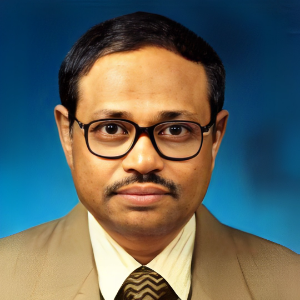Title : Nanofertilizers: Future for global food production
Abstract:
Different nanofertilizers can be synthesized through physical, chemical, aerosol and biological means to enhance plant productivity, nutrient use efficiency, stress management, soil health management and environmental protection. Results showed that nano-nutrients application in agriculture may serve as an opportunity to achieve sustainability towards global food production. Important benefits of nanonutrients over conventional chemical fertilizers rely on nutrient delivery system. For example, nutrient can be released over 40-50 days in a slow-release fashion rather than 4-10 days by the conventional fertilizers. The nutrient use efficiency also improved by 2-20 times, therefore, nutrient requirements is less as well as reduces the need for transportation and application costs. Moreover, by using small quantities soil does not get loaded with salts that usually are prone to over application using conventional fertilizer. Nanonutrients also can be used as nanobioformulations. The formulations containing one or more beneficial microorganisms after blending of required nanoparticles to enhance soil productivity. Nanobioformulations can be helpful to enhance the stability of biofertilizers with respect to desiccation, heat and UV inactivation. It can also solve some limitations of biofertilizers such as ease to handling, enhanced stability, protection against oxidation, retention of volatile ingredients, taste making, consecutive delivery of multiple active ingredients etc. In general, plant nutrient as nano-size mobilizes 30% more native nutrient than conventional fertilizer application. The average improvement of yield, irrespective of crops and soil types, varies between 24-32% as compared to 12-18% under chemical fertilizers. Nanomaterial, with a particle size less than 100 nm, influences key life events of the plants that include seed germination, seedling vigor, root initiation, stress management, growth and photosynthesis to flowering. Additionally, nanonutrient have been implicated in the protection of plants against oxidative stress as they mimic the role of antioxidative enzymes such as superoxide dismutase (SOD), catalase (CAT) and peroxidase (POX). But in spite of all these, nanofertilizers and nanobioformulations should be applied as recommended doses; because at higher rate of application have been proved to be phytotoxicity as they enhance the generation of reactive oxygen species (ROS). The elevated level of ROS may damage the cellular membranes, proteins and nucleic acids. The uptake rate of nanonutrients by plants also depends on their shape and sizes. In general, small sizes of nanoparticles can be penetrating through the cuticle while larger nanoparticles can penetrate through cuticle-free areas such as hydathodes, the stigma of flowers and stomata. Nanonutrients may be applied both on soils and on leaves as foliar. This can also be applied through drip, hydroponic, aqua and aeroponic. With recommended doses of application, it can be envisaged to become major economic driving force and benefit consumer and farmers with no detrimental effect on the ecosystem.



